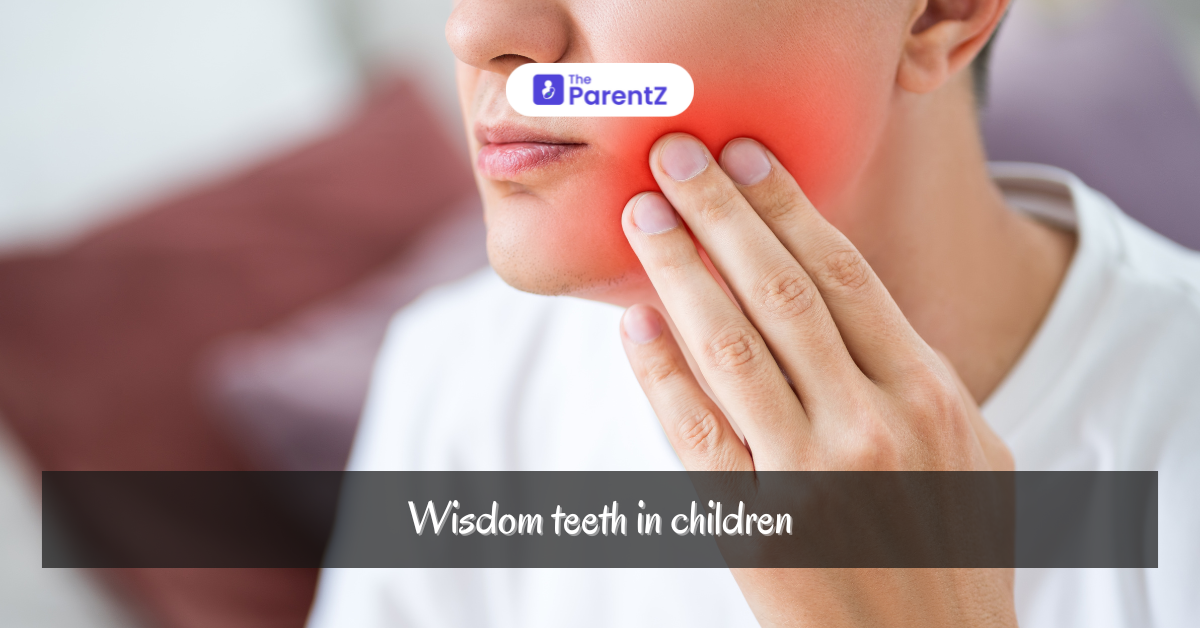Wisdom teeth, also known as third molars, usually emerge in late adolescence or early adulthood, typically between the ages of 17 and 25. However, in rare cases, some children may start developing them earlier, around age 10 to 13. As parents, it’s essential to understand when to be concerned about wisdom teeth in children, as early or problematic eruption can lead to discomfort or more serious dental complications. This article will guide you through the signs, potential issues, and when to seek professional advice for your child’s wisdom teeth.
What Are Wisdom Teeth?
Wisdom teeth are the last set of molars at the back of the mouth and often appear after all the other permanent teeth have erupted. While these teeth were once necessary for our ancestors' diets of tough, coarse foods, modern eating habits and dental care have made them less critical for daily function. In fact, many people live without them, especially if they are removed due to complications.
When Do Wisdom Teeth Start to Erupt?
Wisdom teeth typically begin to develop during childhood, but they may not erupt until the late teen years or early adulthood. In rare cases, wisdom teeth may emerge earlier in children as young as 10. Early eruption can sometimes cause problems because the jaw is still developing, and there may not be enough space for these additional teeth.
Signs of Wisdom Teeth Erupting in Children
While wisdom teeth in children are rare, parents should be aware of some key signs indicating that these molars might be starting to come through:
1. Swollen or Tender Gums: Inflammation or tenderness at the back of the mouth, especially behind the second molars, can be an early sign.
2. Jaw Pain: The pressure of wisdom teeth pushing against the surrounding teeth can cause discomfort or pain in the jaw.
3. Difficulty Chewing or Opening the Mouth: This may occur if the wisdom teeth are putting pressure on nearby teeth or if they are impacted (trapped under the gums or bone).
4. Crowding of Teeth: Wisdom teeth can cause the other teeth to shift, leading to alignment issues or crowding.
If your child is experiencing these symptoms, it is wise to consult with a pediatric dentist or orthodontist to assess the situation.
When to Be Concerned About Wisdom Teeth in Children
While wisdom teeth may emerge without causing any problems, there are certain situations where they can lead to complications. Here are a few red flags to look out for:
1. Impaction
Impacted wisdom teeth are unable to fully erupt because there is not enough space in the jaw. This can lead to discomfort, swelling, infection, or damage to surrounding teeth. Impacted wisdom teeth can also cause cysts or abscesses if left untreated.
2. Infection
As wisdom teeth erupt, they may create small openings in the gums where food particles and bacteria can accumulate. This increases the risk of infection, which can cause pain, swelling, and difficulty in opening the mouth. Pericoronitis, a specific type of gum infection, is particularly common with wisdom teeth.
3. Crowding and Misalignment
The emergence of wisdom teeth can cause nearby teeth to shift, potentially undoing years of orthodontic work. If your child has had braces or other corrective treatment, wisdom teeth could compromise the results by causing crowding or misalignment.
4. Decay or Gum Disease
Wisdom teeth are located far back in the mouth, making them harder to clean. This can lead to cavities or gum disease if proper oral hygiene isn’t maintained. For children, this is particularly concerning, as they may not yet have established thorough brushing and flossing habits.
Treatment Options for Wisdom Teeth in Children
If your child’s wisdom teeth are causing problems or are likely to in the future, your dentist may recommend one of the following treatments:
- Monitoring: If the teeth are coming in but are not causing immediate issues, the dentist may suggest monitoring their progress with regular check-ups and X-rays.
- Extraction: In cases of impaction, crowding, or infection, extraction may be the best solution. Wisdom teeth removal is a common procedure that can prevent future complications.
- Orthodontic Intervention: If the teeth are affecting the alignment of your child’s bite, an orthodontist may need to intervene.
Conclusion
While wisdom teeth in children are uncommon, early signs of eruption should not be ignored. Regular dental check-ups can help identify any potential issues early on, allowing for a proactive approach to treatment. Whether through monitoring, extraction, or orthodontic care, addressing wisdom teeth concerns promptly can prevent discomfort and long-term dental complications. As a parent, being informed about the potential issues surrounding wisdom teeth in children will help you make the best decisions for your child's oral health.








Be the first one to comment on this story.